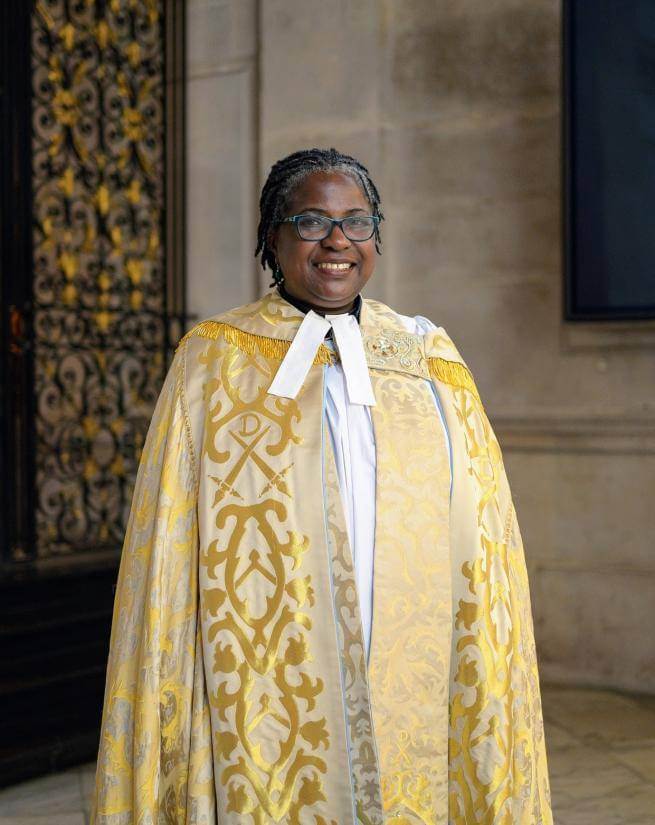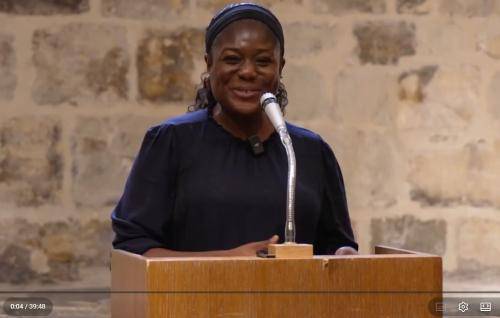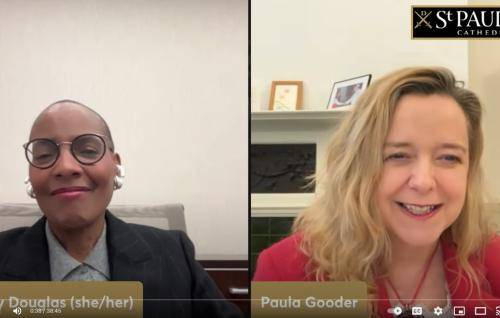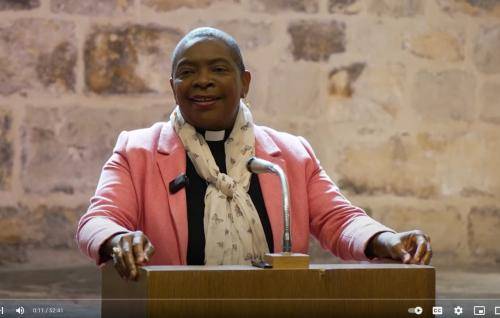Remembering Martin Luther King
Remembering Martin Luther King
Alexandra Drakeford reflects on the philosophy of Dr Martin Luther King Jr for Black History Month.
1. Martin Luther King's philosophy
This year marks the 60th anniversary of Dr Martin Luther King’s historic sermon at St Paul’s Cathedral. You may well be familiar with his principles, but allow me to introduce you to his philosophy.
Many say ‘Dr King was a civil rights leader who fought for racial equality.’ This is true, but it is not complete. Dr King was a leader – a civil rights leader, a moral leader, an economic justice and anti-war advocate. He spoke to heal the heart of the world, not exclusively the heart of the American South.
Across the world, our hearts and minds are living in a shared, never-ending battle between our flesh and the Spirit. Dr King was acutely aware of our shared struggle. He knew humans were destructive, so he framed the forces of love and forgiveness as ‘creative weapons.’ But he wanted us to use these creative weapons to destroy the forces of injustice, poverty, and hate so we could build a Beloved Community.
Dr King constantly steered us away from our purely human understanding, to live by spiritual principles. He wanted to bridge the gap between how we live and how we ought to live.
To do this, he acknowledged how weak our own human philosophy and judgment were. He surrendered his mental self-reliance to three principles, and it’s these three principles we’ll reflect on over the coming weeks.
The first is love. not the type of love we think of, but an unconditional love. God’s love – agape. This love, Dr King believed, was the ‘most durable power in the world’.
The second is forgiveness. Because without love, we cannot have forgiveness. And without forgiveness, we will be stuck in our shame and bitterness, stalling our ability to move forward.
The last is the Beloved Community. The Beloved Community is how Dr King envisioned our shared human experience. He wanted us to recognize our increasing interconnectedness and interdependence in our rapidly changing world. Many principles like love, forgiveness, dignity and justice come together and build the beloved community.
That was the whole point of everything he lived — and died – for. Building the Beloved Community where dignity, justice, and love washed away the sins of poverty, injustice, and hate. But these were not to be washed away by magic or newness, but earned through the active pursuit of redemption and reconciliation.
2. Love
Love is the ultimate legacy of Dr King. Love moulded his vision for our world. It was the basis for all his actions and philosophies.
It is not enough to simply understand Dr King’s level of love, one must embrace his commitment to seeing its execution.
The love he preached was Agape – God’s love. An unconditional love that seeks nothing in return. Agape is based on the fact that we are human, each of us divine creations in His image. When we learn to love on this level, we love one another not because we like them, but because we are all children of God.
For most of my life, I could never understand Dr King. How could he preach messages of love when he received so much hate? What was sustaining his unwavering commitment to love?
Dr King wrote that agape was ‘the love of God working in the minds of men’.
But to allow the love of God to work in our minds requires us to open our hearts and humble ourselves to let this work happen.
Agape is a transformational love that surpasses our human, earthly understanding of love. To love on the agape level, we have to transcend the fleshly standards of love and live by the spiritual standard of love. It requires us to humble ourselves before God and to love because of His glory and not because of our feelings. And this is exactly what Dr King did.
We can be tempted to put Dr King and his principles on a bookshelf, collecting dust as if they should exist isolated in history. But when we put him in this separate, above-human category, we excuse ourselves from our capability of living and loving like him.
Dr King was undoubtedly a noble and exceptional man, but what made him so extraordinary and committed to love was his ability to humble his mind and open his heart to God’s standard of love. That is what transcended and transformed him.
Instead of seeing Dr King as a man who simply rose above the rest of us, see him as a man who knew who was above. Since he knew who was above, he humbled himself to let God work in his heart and mind, so he could love the way God intended us to love each other. Embrace the humility that Dr King did and love one another the way God loves us.
3. Forgiveness
I always admired Dr King’s infinite capacity to forgive. He received constant death threats, had his home bombed, was brutally stabbed, arrested, and beaten, and still found it within his heart and soul to forgive those who harmed him.
Dr King refers to Peter, who would ask Jesus– ‘How often shall my brother sin against me and I forgive him?’ Perhaps seven times?’ Peter tried to quantify forgiveness, but forgiveness cannot be measured or counted. It is not put in a cup that can run dry.
Forgiveness is like a river. It is an abundant source that refreshes the hearts and souls of the victim and the perpetrator.
We think that forgiveness is a one-way street as if it were up to one person to forgive and move on. But forgiveness is a shared process. It is not something we give and get, but something we experience and participate in. Forgiveness sets both the victim and the perpetrator free.
To Dr King, ‘Forgiveness is a permanent attitude’. It is not an act that stops at seven or even seventy times. “It does not mean ignoring what has been done. It means the evil act is no longer a barrier to the relationship.”
Dr King specifically says the evil act rather than the evil person. The barrier is the lack of separation between the evil act and the person. Eventually, we can find ourselves meshing the two and saying, ‘the evil person.’ But agape reminds us to separate the two, as “no one is out of reach from God’s love” – and that includes those who harm us.
Dr King understood that a lack of forgiveness would leave us all stuck in bitterness. But ‘Forgiveness is a catalyst creating the atmosphere for a fresh start and new beginning.’ And that new beginning, the new atmosphere will lead us into the Beloved Community.
4. The Beloved Community
After all the violent attacks Dr King had suffered, many would ask him ‘What room is there for love and forgiveness now?’ It felt that the dark emotions of rage and resentment had blackened out the light of love and forgiveness.
But this question should have been a statement— amidst all of this, there must be room for love and forgiveness.
Dr King, like Jesus, knew that without forgiveness, the fires of revenge plague the human mind, as seeking an ‘eye for an eye will leave everyone blind.’ And if everyone is blind, we will never see the truth.
The truth is that Dr King wanted us to build the Beloved Community, where Love is the foundation, Forgiveness is the brick, and the Beloved Community is the home.
The Beloved Community may sound like utopia, an unachievable, unrealistic kumbaya society. But “Our goal is to create a beloved community and this will require a qualitative change in our souls as well as a quantitative change in our lives.” We know that within our souls, love and forgiveness must become unconditional attitudes – and they are connected to the tangible result of The Beloved Community.
The Beloved Community seeks justice, delivers dignity, and establishes peace. It is not a palace of passivity, but a home of healing. It will heal us from the sins of prejudice and discrimination, by awakening a sense of moral shame in the perpetrators. The Beloved Community does not let us sit in shame but strives toward salvation. It thrives because it is filled with justice. The Beloved Community eliminates poverty, and racism, and demands dignity based on its love for its brothers and sisters.
This is what Dr King wanted us to work towards. He did not want us to simply love and forgive for the sake of it, for the sake of lack of tension. He knew it was imperative to love and forgive one another so we could finally realize our demand for dignity, and our shared humanity, and achieve justice. Dr King knew the end goal was not revenge, because revenge will not deliver true justice. The end was redemption because of forgiveness. The end was reconciliation because of love. The end was the Beloved Community because of a shared connection to one another.
This month we will follow each reflection with a bible verse and some questions written by The Revd Canon Adéọlá Eleyae which you are welcome to use by yourself or as a group.
I have been crucified with Christ and I no longer live, but Christ lives in me. The life I now live in the body, I live by faith in the Son of God, who loved me and gave himself for me.
- How do you think that others would describe you and your philosophy? Would God feature in their description?
- What creative weapons can you frame to stand against prejudice and oppression in your context?
2. 1 John 3:16
We know love by this, that he laid down his life for us—and we ought to lay down our lives for one another.
- What is your lived experience of Agape love?
- People often ‘judge a book by its cover’ - reaching judgment and making assumptions about others based on their appearance, accent, economic circumstances, education or race. What should Agape love make you see, hear and do?
Bear with each other and forgive one another if any of you has a grievance against someone. Forgive as the Lord forgave you.
- In Matthew 18:21-35 Jesus responded to Peter’s question about forgiveness with a parable. What does it mean to “forgive your brother or sister from your heart.”?
- What kind of things prevent us from forgiving people?
Let love be genuine; hate what is evil, hold fast to what is good; love one another with mutual affection; outdo one another in showing honour.
- Dr King identified Love and Forgiveness as crucial to building the Beloved Community. What other biblical principles are vital for building a community where there is no poverty, hunger, violence, hate or discrimination, and where everyone is cared for?”?
- Read the rest of Romans 12 (verses 11-21) What steps do you think you can take personally towards achieving the Beloved Community?
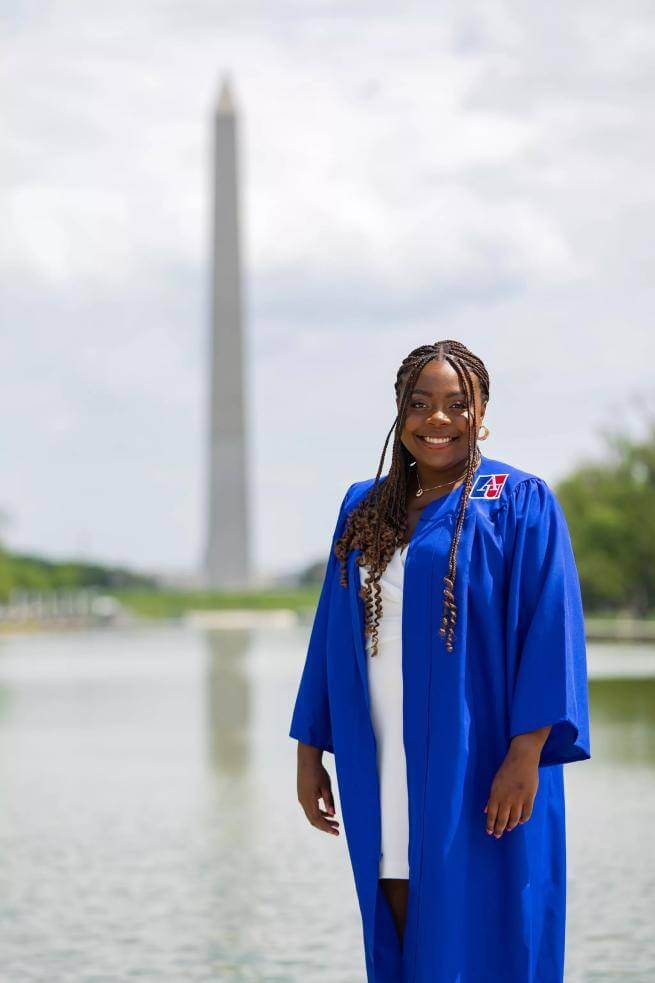
Alexandra Drakeford is a Frederick Douglass Distinguished Scholar Alumna of American University, Washington DC, 2024 TEDxOxford Speaker, a Martin Luther King Jr. Social Justice Fellow and Co-Chair of the Princeton Prize in Race Relations Washington DC Committee.
